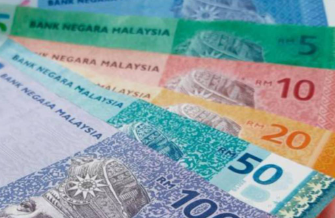KUALA LUMPUR — Malaysia has formally abandoned its earlier plan to introduce a high-value goods tax (HVGT), Prime Minister and Finance Minister Datuk Seri Anwar Ibrahim confirmed in a written reply to Parliament. Instead, the government has integrated its core principles into a revised sales tax framework targeting luxury and discretionary items, now subject to tiered taxation of 5% or 10%.
The revised approach forms part of a broader tax reform strategy aimed at increasing national revenue and reducing reliance on subsidies.
Revenue Boosts from Alternative Tax Measures
Anwar highlighted that the low-value goods tax, implemented on January 1, 2024, has already contributed RM500 million (S$151.5 million) in revenue so far in 2025.
Meanwhile, the latest revision to the sales and service tax (SST) system, effective July 1, is expected to raise an additional RM5 billion this year and could double to RM10 billion in 2026, according to projections from the Finance Ministry.
These reforms have been supplemented by a capital gains tax on unlisted shares, introduced on March 1, 2024. This measure is expected to generate RM800 million annually, with official figures pending corporate income tax filings.
Diesel Subsidy Reform Saves Billions
Malaysia’s diesel subsidy rationalization, another key component of its fiscal reform agenda, has resulted in savings of up to RM600 million per month. The policy, part of an effort to streamline government spending, has been credited with easing budgetary pressure amid global energy volatility.
Digital Services Tax Continues to Deliver
While no new tax on digital goods has been introduced, the service tax on digital services, in place since 2020, continues to perform strongly. This tax — levied on foreign and domestic digital service providers including subscription and streaming platforms — has brought in RM1.6 billion in revenue in the first half of 2024.
A More Sustainable Fiscal Future
Anwar stated that these tax reforms, coupled with a rationalization of subsidies and targeted revenue mechanisms, will help bolster Malaysia’s long-term fiscal resilience. While the decision to abandon the high-value goods tax marks a shift in strategy, analysts suggest that the government’s broader, multi-pronged approach reflects a more sustainable path to fiscal consolidation.
Mixed Reactions from the Business Community
While some industry stakeholders welcomed the decision to scrap the HVGT — citing its potential complexity and impact on luxury retail — others urged clarity on the scope and implementation of the revised sales tax framework. Economists have generally praised the reforms as “pragmatic and data-driven,” though caution remains over enforcement consistency and long-term equity effects.
More details on revenue performance and policy adjustments are expected in Malaysia’s upcoming Budget 2026 announcement. (zai)

